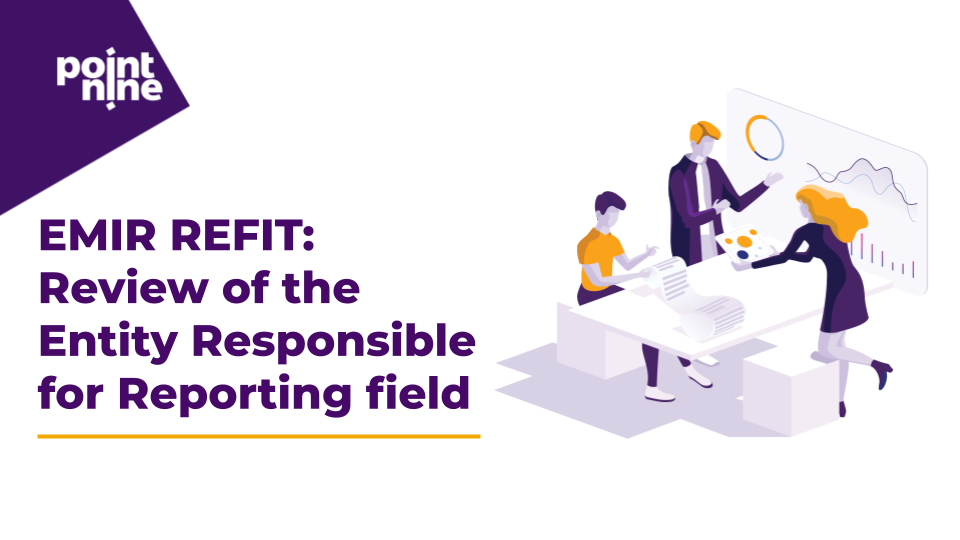Financial firms must confront the challenge of complying with a host of regulations. Often, these rules are numerous, complicated and nuanced. Resultantly, many businesses are seeking streamlined solutions to satisfy various reporting and documentation standards. The term “RegTech” has come to represent any new technology which serves to automate or ease the process of compliance.
The Benefits of RegTech
Emerging RegTech overlays structure and order to existing data. This filter simplifies reporting requirements because while firms have volumes of data, they often lack the ability to synthesize and organize the information. The efficiency of RegTech offers three significant benefits to financial firms tasked with regulatory compliance.
01. Renewed Focus on the Business
Technology creates efficiencies. Efficiency allows us to get more done. However, as a result, expectations for productivity move in tandem with these technological gains. Therefore, the more we’re able to accomplish the more we’re expected to achieve. In recent years this has fostered a fiercely competitive environment where a technological arms race has driven firms to move faster to garner greater AUM.
As regulatory compliance requirements have become more robust companies, have become distracted from their core competencies. Businesses are devoting more time to reporting and recording activities then they are to strategy and development. RegTech solves this problem with customizable reporting programs.
02. Savings
Meeting compliance standards has become a business of its own. Findings from a Thomas Reuters 2015 compliance review illustrate the “regulatory fatigue” that pervades the financial industry. Researchers discovered that “70 percent of firms are expecting regulators to publish even more regulatory information in the next year, with 28 percent expecting significantly more.” This eventuality will only increase the already substantial cost of compliance. Amid rising requirements comes a greater need for talent. Well over half the respondents cited growing staff needs to cover the regulatory challenges. What does this add up to? “More than two-thirds of firms (68 percent) are expecting an increase in their compliance budget this year with 19 percent expecting significantly more.”
RegTech puts more tools in the hands of compliance professionals. With greater agility comes faster solutions that may, in time, drive down the need for larger staffs commanding hefty salaries. Experts at Deloitte summarize this phenomenon well, “The key difference between traditional solutions versus the RegTech era solutions is simple – agility. Whilst traditional solutions are robust and designed to deliver on your specified and “locked down” requirements, they can be inflexible and require development or configuration in a proprietary language for enhancements or changes.”
While initial costs to adopt RegTech software solutions may be high this outlay can be considered a front-loaded cost. In time the investment will pay for itself with less exposure and greater speed in processing compliance needs.
03. Reduced
Risk A 2015 risk management article from EY revealed that “Recently uncovered conduct and compliance failures have resulted in huge financial and reputational costs to the industry, and nearly two-thirds of survey participants agree that lapses in internal oversight and controls are the main reasons for these losses.” In short: even the slightest misstep in the compliance game can bring a corporation to its knees. Increasingly firms have given more attention to these non-financial risks.
With RegTech solutions, management can rest assured knowing that they are meeting the minutia of regulations. In many cases liability falls not only on the company but those heading compliance efforts within the firm. That is, personal responsibility exists. This responsibility puts stress on employees. RegTech, however, reduces this anxiety with guidelines and easy integration so that the professional can gain a better holistic picture.
Taking the Next Step
Examine what style of RegTech is appropriate for your business. For example, you can find focused solutions in the areas of fraud prevention, conduct analytics, employee surveillance, compliance data warehouse, predictive analytics and more.
Decide what aspect of operations is in most need of automation. Take time to perform an ROI analysis. In all likelihood, all areas will benefit from automation but learn where the dollar savings will be greatest and most immediate.
Build a timeline. Set goals and commit them to paper. Projects drift, and compliance should not be one of them. For a period you will need to balance performing compliance the old way and new way simultaneously. Consider this aspect of the transition when calculating a realistic deadline for full implementation.
Foster team buy-in. People will be hesitant to adopt new methods. Employees will need to devote valuable time to learning how new systems work. Ensure that everyone comes to an agreement on the long-term value so as to create cohesiveness.
References
- EY. Rethinking risk management. Banks focus on non-financial risks and accountability. 2015.
Deloitte. RegTech is the new FinTech: How Agile Regulatory Technology Is Helping Firms Better Understand and Manage Their Risks. 2015 - Thomas Reuters. Annual Cost of Compliance Survey Shows regulatory Fatigue, Resource Challenges and Personal Liability to Increase Throughout 2015.
- EY. Innovating with RegTech: Turning regulatory compliance into a competitive advantage. 2016.





